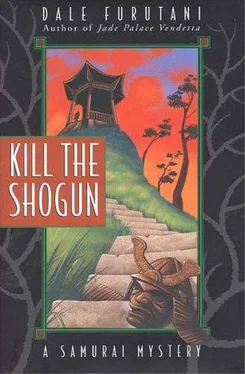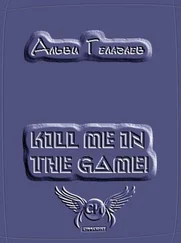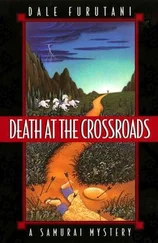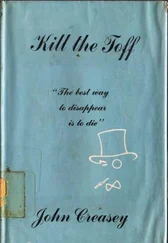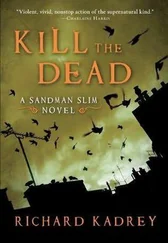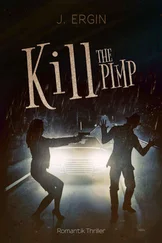Dale Furutani - Kill the Shogun
Здесь есть возможность читать онлайн «Dale Furutani - Kill the Shogun» весь текст электронной книги совершенно бесплатно (целиком полную версию без сокращений). В некоторых случаях можно слушать аудио, скачать через торрент в формате fb2 и присутствует краткое содержание. Год выпуска: 2011, ISBN: 2011, Жанр: Исторический детектив, на английском языке. Описание произведения, (предисловие) а так же отзывы посетителей доступны на портале библиотеки ЛибКат.
- Название:Kill the Shogun
- Автор:
- Жанр:
- Год:2011
- ISBN:0688158196
- Рейтинг книги:3 / 5. Голосов: 1
-
Избранное:Добавить в избранное
- Отзывы:
-
Ваша оценка:
- 60
- 1
- 2
- 3
- 4
- 5
Kill the Shogun: краткое содержание, описание и аннотация
Предлагаем к чтению аннотацию, описание, краткое содержание или предисловие (зависит от того, что написал сам автор книги «Kill the Shogun»). Если вы не нашли необходимую информацию о книге — напишите в комментариях, мы постараемся отыскать её.
Kill the Shogun — читать онлайн бесплатно полную книгу (весь текст) целиком
Ниже представлен текст книги, разбитый по страницам. Система сохранения места последней прочитанной страницы, позволяет с удобством читать онлайн бесплатно книгу «Kill the Shogun», без необходимости каждый раз заново искать на чём Вы остановились. Поставьте закладку, и сможете в любой момент перейти на страницу, на которой закончили чтение.
Интервал:
Закладка:
Kaze stepped to one side to see the contents of the pot that was sitting in the midst of the newly lit fire. When he saw the pot’s contents, he dropped his kite and twine to the earth.
“Let that poor creature go!” Kaze’s voice was sharp and low. Although he was a full head taller than Kaze, Okubo somehow felt threatened.
“Take care of that brat,” Okubo ordered his retainers. Incredibly, they made no move to comply. Instead, they stood there immobile and mute.
“I said, let that creature go!” Kaze had advanced on Okubo, his hands now in two tight fists.
Okubo looked at his retainers, still not understanding why they hadn’t moved to follow his orders. When he looked back at Kaze, his face was filled with a fist flying toward it.
The fight was not an elegant one. It was a schoolboy scuffle. Okubo was taller and stronger than Kaze, but Kaze had the strength of will and rapid reflexes that rained a shower of blows on Okubo. The fight ended with Kaze sitting on Okubo’s chest, pummeling his head, while the older boy tried to protect himself by placing his hands over his face. The three Okubo retainers simply looked on.
Convinced he had thrashed the older boy, Kaze got off Okubo and ran to the fire. He kicked the pot over and the spilling water doused half the flame, sending up a cloud of white steam. Kaze took the struggling dog out of the pot and untied it, first making sure the water had not yet gotten hot enough to harm the animal. As soon as Kaze released the dog from its bonds, the animal leapt up and ran with all speed out of the area.
Okubo complained about the beating. Since he was the son of a daimyo, the Lord who was holding him hostage called Kaze and his father to explain themselves.
As they sat outside the Lord’s reception room, Kaze could see his father was irritated by the trouble Kaze had caused. Kaze knew the Lord had power of life and death over his father and everyone in the fief. From the fact that his father was irritated but not concerned, Kaze guessed the situation wasn’t as serious as that. Still, he felt acute embarrassment for causing trouble.
He sat waiting, trying to wash all thoughts from his mind and concentrating on his breathing. Breath was life and Kaze had already been taught the breathing exercises that samurai students were drilled in. It calmed him and also steeled him to go through his first direct contact with his daimyo. He wanted to greet the daimyo as a warrior and not a child.
The Lord finally called them in.
As they entered, the daimyo and his son, who was a few years older than Kaze, were sitting on a dais at the end of the room. Kaze and his father marched to the daimyo, stopping a respectful distance away. They both gracefully sank to their knees, put their hands on the floor before them, and gave a deep, formal bow, almost touching their heads to the floor. Then they both sat up, sitting on their legs, with calm faces and rigid backs.
The daimyo was impressed. The young boy had been well schooled in proper etiquette, but any child likely to have contact with daimyo and other high officials of the clan would be so schooled. What impressed the daimyo was the calm of the boy. Most children would be nervous or even crying when summoned to see the Lord of the fief after beating the son of another daimyo. The daimyo glanced at his son, to see if he had also noted the young boy’s presence. In the normal course of things, this young boy would someday serve the daimyo’s son, just as the father served the daimyo.
“Young Okubo complained about your beating him,” the daimyo said without preliminaries. The young boy sat calmly, not denying the charge or rushing to offer an excuse.
“I did beat him, great Lord,” the boy said.
After waiting to see if the boy would say more, the daimyo continued. His respect for this youth increased because he maintained an impressive composure, and he started looking at him as a precocious young man, and not a child. “Why did you beat him?” he asked.
“Young Lord Okubo had a dog tied up in a pot of water and he seemed intent on boiling it alive.”
“So he was torturing your dog?”
“It was not my dog, great Lord.”
Surprised, the daimyo asked, “It was not your dog?”
“No, Lord. I think it was a stray dog.”
“Then why did you rush to protect it? Are you aware that some daimyo hunt dogs, shooting them from horseback with a bow and arrow?”
“Yes, great Lord.”
“And would you beat up the son of a daimyo if he was doing that?”
“Probably not, great Lord.”
“Why not?”
“Because that is not cruelty for cruelty’s sake. I was taught that all creatures must die, including human beings. Death is inevitable, by one means or another. The manner of death, however, is important. Being boiled alive to give another pleasure is not a good death, even for a dog. I have never seen this type of cruelty exhibited before by our clan. Young Lord Okubo is a future daimyo, but he is also a guest of our clan. He should abide by the customs of our clan. That includes not inflicting pain for callous reasons, even to a dog.”
Kaze’s father opened his mouth as if to say something, but then closed it. His son was acquitting himself like a man. He didn’t know from what depths the young boy was pulling up the answers he was giving. He wanted to turn his head and look at his son, but protocol prevented him from doing so in this type of formal interview. He had to keep his face toward his daimyo.
The daimyo raised his eyebrows at Kaze’s answer, surprised at the response.
“Undoubtedly there are other customs in Okubo’s own clan,” the daimyo said diplomatically. “Why do you think Okubo complained to me about the beating you gave him?”
“To get me in trouble because he was defeated and …” For the first time in the interview, Kaze looked his age as youthful embarrassment flitted across his face. He stopped talking.
“Finish your thought,” the daimyo commanded.
“Yes, great Lord. I believe young Lord Okubo complained to you because he has not been properly trained in bushido, the way of the warrior. A true warrior would never complain about such a trivial matter.”
The daimyo placed his hand to his face to hide his smile, but his son, who was not as experienced in maintaining his composure, laughed out loud.
After a moment, the daimyo said, “All right. I’m not going to punish you this time, but please try to restrain yourself from beating up the sons of daimyo, even if they’re engaged in what you think is cruelty.”
Kaze and his father gave another deep, formal bow and left the room. As they left, Kaze’s father looked at his son as if he were seeing him for the first time.
When the father and son were gone, the daimyo looked at his own son and said, “Someday that young man will become your right arm.”
Okubo was assured that proper punishment had been given to Kaze, but he continued to hate the young boy. He also hated the retainers who did not defend him, and when he returned to his own fief, he had the three retainers put to death.
Later, Kaze and Okubo met again during the finals of Hideyoshi’s great sword tournament. There, Okubo’s clan tried to bribe Kaze, which made him want to destroy Okubo, not just defeat him.
CHAPTER 8
Poor pay, much hardship,
and the joy of the moment.
Welcome, show business!
Kaze balanced the top on his blade and walked it toward the tip. Although he kept the top balanced on the sword, his attention was not on the spinning orb of painted wood. Instead, he was studying a building across the street from him.
It was a discreet building of dark wood and white plaster outer walls. It might have been an upper-class residence, except for the blue half-curtain hanging from the top of the door. The curtain had the kanji for “Little Flower” on it.
Читать дальшеИнтервал:
Закладка:
Похожие книги на «Kill the Shogun»
Представляем Вашему вниманию похожие книги на «Kill the Shogun» списком для выбора. Мы отобрали схожую по названию и смыслу литературу в надежде предоставить читателям больше вариантов отыскать новые, интересные, ещё непрочитанные произведения.
Обсуждение, отзывы о книге «Kill the Shogun» и просто собственные мнения читателей. Оставьте ваши комментарии, напишите, что Вы думаете о произведении, его смысле или главных героях. Укажите что конкретно понравилось, а что нет, и почему Вы так считаете.
